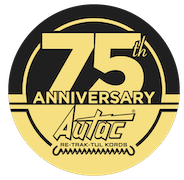In the realm of electrical systems, grounding is a critical component that ensures safety and reliability. Among the many tools available for effective grounding, coiled grounding wire stands out for its flexibility, durability, and space-saving design. Whether used in industrial equipment, automotive systems, or portable applications, coiled grounding wires are essential for maintaining electrical stability.
This detailed guide explores what coiled grounding wire is, its applications, advantages, and factors to consider when selecting one for your needs.
What Is Coiled Grounding Wire?
A coiled grounding wire is a type of wire designed with a helical, spring-like shape that allows it to stretch and retract as needed. Unlike traditional straight wires, coiled grounding wires offer flexibility and adaptability, making them ideal for environments where movement or adjustable length is required.
These wires are typically made of high-conductivity materials such as copper or tinned copper, which provide excellent electrical performance and corrosion resistance.
Key Applications of Coiled Grounding Wire
Coiled grounding wires are versatile and used across various industries, including:
1. Industrial Equipment
- Provides reliable grounding for machinery that requires mobility or repositioning.
- Protects operators and equipment from electrical faults and static discharge.
2. Automotive Industry
- Commonly used in vehicles to ground components such as batteries, sensors, and electronic control units.
- The coiled design accommodates movement and vibration in automotive systems.
3. Portable Devices
- Ideal for grounding portable generators, tools, or testing equipment, where flexibility and portability are essential.
4. Telecommunications
- Ensures stable grounding for mobile towers and other equipment exposed to environmental factors.
5. Construction Sites
- Used for temporary grounding in dynamic environments, such as for scaffolding, power tools, or machinery.
Advantages of Coiled Grounding Wire
1. Flexibility and Extendability
The coiled design allows the wire to stretch to its full length when needed and retract to save space when not in use. This flexibility makes it perfect for applications with frequent movement or limited space.
2. Durability
Coiled grounding wires are built to withstand harsh conditions, including mechanical stress, temperature variations, and exposure to moisture or chemicals.
3. Easy Installation and Maintenance
The retractable nature of the wire simplifies installation and reduces the risk of tangling or damage during use.
4. Safety Assurance
By providing a reliable grounding path, coiled grounding wires help prevent electrical shocks, equipment damage, and static discharge.
5. Space-Saving Design
When retracted, the compact size of the coiled wire saves space, making it ideal for applications with limited storage or workspace.
Factors to Consider When Choosing Coiled Grounding Wire
To ensure optimal performance, consider the following factors when selecting coiled grounding wire:
1. Material
Choose high-quality conductive materials like copper for excellent electrical performance and durability. For additional corrosion resistance, consider tinned copper.
2. Wire Gauge
Select the appropriate gauge to handle the expected current load. Thicker wires (lower gauge numbers) are suitable for high-current applications.
3. Length and Coil Diameter
Determine the required extended length and retracted size based on your application needs. Ensure the coil diameter allows for easy stretching and retraction without compromising strength.
4. Insulation
Opt for wires with durable insulation to protect against environmental factors like moisture, chemicals, and extreme temperatures.
5. Compliance and Standards
Ensure the coiled grounding wire meets industry standards and certifications for safety and performance, such as UL or RoHS compliance.
Maintenance Tips for Coiled Grounding Wire
To maximize the lifespan and performance of your coiled grounding wire, follow these maintenance practices:
- Regularly inspect the wire for signs of wear, corrosion, or damage.
- Clean the wire and connectors to maintain conductivity.
- Avoid overstretching the coil to prevent permanent deformation.
- Store the wire in a dry, cool place to prevent exposure to harmful environmental conditions.
5 FAQs About Coiled Grounding Wire
1. What is a coiled grounding wire used for?
Coiled grounding wires are used to provide a flexible and retractable grounding solution in applications requiring mobility, such as industrial machinery, portable generators, vehicles, and temporary construction sites. They ensure safety by preventing electrical faults and dissipating static electricity.
2. What materials are used in coiled grounding wires?
Coiled grounding wires are typically made from high-conductivity materials like copper or tinned copper to ensure efficient electrical performance and corrosion resistance. The insulation and outer jacket may use materials such as PVC, TPE, or silicone for durability and protection against environmental factors.
3. How do I choose the right coiled grounding wire for my application?
Key factors to consider include:
- Length: Determine the extended and retracted lengths required.
- Gauge (AWG): Select the appropriate thickness based on current load.
- Durability: Choose materials suitable for the operating environment (e.g., moisture, chemicals).
- Compliance: Ensure the wire meets safety standards like UL or RoHS.
4. What are the advantages of coiled grounding wires compared to straight wires?
Coiled grounding wires offer:
- Flexibility: They can stretch and retract, making them ideal for dynamic environments.
- Space-Saving Design: Compact when retracted, reducing clutter.
- Durability: Resistant to wear, bending, and mechanical stress in high-motion applications.
5. How do I maintain coiled grounding wires for optimal performance?
To maintain coiled grounding wires:
- Inspect regularly for wear, corrosion, or damage.
- Clean the wire and connectors to ensure consistent conductivity.
- Store in a dry and cool environment to avoid exposure to moisture or extreme temperatures.
- Avoid overstretching to prevent deformation of the coil.
Why Coiled Grounding Wires Are Essential?
Coiled grounding wires offer a unique combination of flexibility, durability, and safety, making them indispensable for a wide range of applications. Their ability to stretch and retract provides unparalleled convenience, especially in dynamic environments. By investing in high-quality coiled grounding wires, you can ensure the safety and reliability of your electrical systems while enjoying the benefits of a space-saving and easy-to-use solution.
Conclusion!!
Whether you’re grounding industrial machinery, automotive components, or portable devices, coiled grounding wires are a reliable and efficient solution. Their unique design, combined with superior material quality and flexibility, ensures optimal performance in even the most demanding conditions.
By understanding their applications, advantages, and selection criteria, you can make informed decisions to enhance the safety and efficiency of your electrical systems. Explore coiled grounding wires today and elevate the reliability of your grounding solutions.




Recent Comments